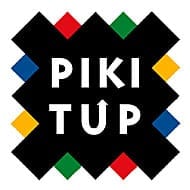From creating jobs and encouraging active citizenry to reducing waste to the city’s strained landfill sites and converting waste to energy, Pikitup has a significant role to play in helping Johannesburg meet its 2040 Growth and Development Strategy goals and, ultimately, its aim of becoming a world-class African city.
Scaling up waste management initiatives Pikitup acting MD Lawrence Boya says that as an agent of the city responsible for solid waste management, Pikitup has a meaningful contribution to make in transforming Johannesburg into a city that is sustainable, liveable, globally competitive, inclusive and resilient. Boya says methane gas, a by-product of landfill sites, contributes towards greenhouse gases and global warming. “By instituting alternative waste management practices, Pikitup can divert waste from landfill sites and reduce greenhouse gases,” he adds. Waste-to-energy technology In September 2011, Pikitup implemented gas-to-energy conversion at its landfill site at Robinson Deep. By extracting the methane gas and flaring it, the harmful effects of greenhouse gases are eliminated. The next step is to convert the gas to energy, which Pikitup hopes to kick off this year. This requires being registered as an independent power producer with the National Department of Energy, tariff approvals and identifying a purchaser for the energy. In addition, Pikitup is investigating various waste-to-energy technologies such as absorbing waste into an incineration process and converting the by-product of this process into steam, electricity or heat. “Every year, one million tonnes of waste goes to landfill – our target is to convert at least half of this into energy,” says Boya. When this gets off the ground, Johannesburg will be one of the first cities in the developing world to institute this type of technology, apart from China. “This will hopefully expand to all cities in South Africa and ultimately contribute to job creation and economic growth,” says Boya. Contributing towards recyclingSeparation at source will also play an important role in reducing waste to Johannesburg’s five landfill sites and will therefore contribute towards a more sustainable city. Boya says businesses, manufacturers and households in the city need to adopt greener waste disposal practices. “Waste needs to be separated at source and items that don’t need to go to landfill need to be recycled,” he says. Pikitup is currently running a recycling pilot project in the Waterval area (western Johannesburg) in conjunction with Mondi, which provides vehicles to collect recyclable waste. Pikitup intends to formalise separation at source for all Johannesburg households in July 2012; in this respect, citizens will have to play an active role in reducing, recycling and reusing.
In addition to separating their waste, households will be encouraged to start compost heaps that can be used to nurture gardens or vegetable patches, thereby further reducing the amount of green waste going to landfill. Boya says Johannesburg needs to transform its current model of ‘collect, transport and dispose’, to a model of ‘reduce, recycle, reuse and remediate’. “This will put us in line with international best practice and the National Environmental Waste Act of 2008. Essentially, this year sees the scaling up of the plans we put in place in 2011. The landfill gas-to-energy project will be instituted at all five landfill sites, separation at source will become a city-wide endeavour and a five-year plan to build a plant for the conversion of waste to energy will get under way,” he says. Holistic approach To ensure that the city’s waste management by-laws are adhered to, Pikitup has enlisted the support of the Johannesburg Metro Police Department, which has provided 34 dedicated police officers to enforce the by-laws. This is because the issues especially relate to illegal dumping and littering. “We will take stronger action if these pleas are continually ignored; however, we will continue to raise awareness and educate the public on the importance of disposing waste efficiently and as directed by Pikitup,” says Boya. Pikitup also views job creation initiatives by communities in a positive light. “In addition to waste pickers who collect plastic and other items for recycling, we are aware of young people in the townships who enter into agreements with households to take their bins to a central point for waste collection and then clean them before returning the bins to their owners. We believe this type of initiative can be organised and expanded to provide additional opportunities for unemployed individuals,” says Boya. Looking at the overall cleanliness issues faced by the city, Boya says rodents have become a significant health hazard. “By promoting anti-littering campaigns and providing the proper infrastructure to support this, Pikitup can begin to address this problem and at the same time dovetail these efforts to complement the city’s health objectives,” he says. He is confident that Johannesburg is on its way to becoming a low-carbon economy.






